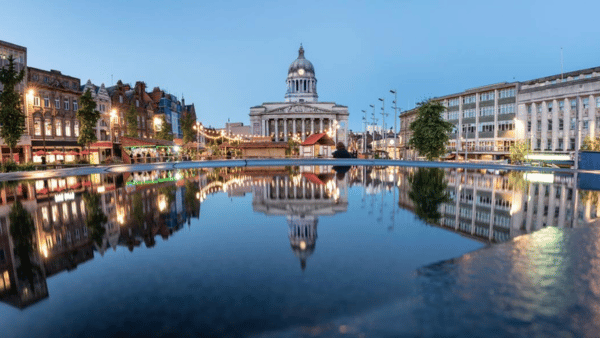Glasgow is one step closer to becoming the first British city to run a universal basic income trial, after the City Council agreed a partnership with the RSA to look at how an experiment might work.
Launching this spring, the feasibility study is the first stage towards launching a full trial of basic income. The RSA will bring together community groups, businesses and politicians to develop options for how a basic income experiment could be run in Glasgow in practice. The study will identify which stakeholders and partners would be involved in any trial and consider the financial and constitutional implications.
Jamie Cooke, Head of RSA Scotland, said:
“The decision by Glasgow City Council is an important moment for basic income in Scotland, and marks a significant step forward. The RSA is delighted to be working with the Council and other partners on the study, and welcomes the leadership the Council has shown. We now have the opportunity to move the basic income conversation forward and identify practical ways to run a trial which works locally and has global resonance.”
The RSA has led research in the UK on basic income. Its paper Creative Citizen, Creative State developed a new fully costed RSA Basic Income model.
Anthony Painter, author of Creative Citizen, Creative State and Director of the RSA Action and Research Centre, said:
“The RSA believes the discussion on basic income is of critical importance. It is vital we explore options to address the failing welfare system and new challenges in the world of work, which continue to emerge.
We want to work with others to widen the debate about how basic income can make a major contribution to a better system of supporting people.”
Notes to Editors
The RSA
The RSA aims to enrich society through ideas and action. We believe that all human beings have creative capacities that can be mobilised to deliver a 21st century enlightenment. We work to bring about the conditions for this change, not just amongst our diverse Fellowship, but also in institutions and communities. Our work ranges from the future of our cities and communities, to education, moving towards a more creative economy and the redesign of public services.
Related news
-
Andy Haldane, CEO of the RSA, calls for ‘social connection revolution’ to reverse economic and social decline
RSA CEO Andy Haldane delivered his annual Chief Executive’s Lecture to a sold-out audience at RSA House.
-
New Designers join Quentin Blake, Zandra Rhodes, and Tim Berners-Lee as Royal Designers for Industry
Three groundbreaking designers became Royal Designers for Industry in 2024. Four honorary Royal Designers for Industry from across the world have also been inducted.
-
Groundbreaking commission to supercharge East Midlands launched
The RSA and the East Midlands Combined County Authority have launched the Inclusive Growth Commission, which will identify and action radical plans to unleash potential and supercharge prosperity in communities across the East Midlands.


Join the discussion
Comments
Please login to post a comment or reply
Don't have an account? Click here to register.
This is good news. It is important to see this as a rightful sharing of the community's income and not as another tax and benefit scheme. The funding should be from a contribution from all who receive income as a flat rate proportion of that income. In that way, depending on the level of sharing chosen, those on low or no incomes could receive more than they pay in and those on high incomes less than they pay in. A large number who are on middle incomes could be roughly in balance with what they pay in and what they receive in Basic Income.
I'd also like to know what 'universal basic income' means please.
Forgive my ignorance, but what do you mean by 'universal basic income' in the context of this study?
Very valuable step, as long as:
- Focus is maintained on practical aspects
- Sharing of practicing is ensured wiht people/entities already involved in the adventure elsewhere
- Some sense of urgency is maintained: so many people will not work free for ever, seeing their added value confiscated by the netarchy of FB, Uber, and the like
- Priority is given to social aspects, clearly leaving aside the libertarian aspects of universal income.
ar